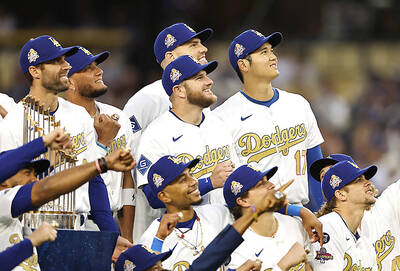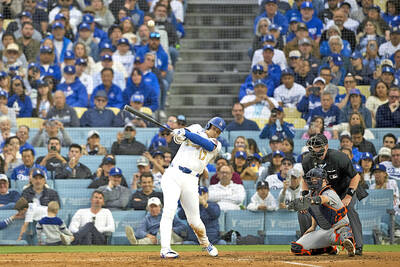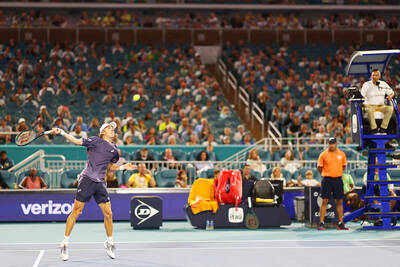Skateboarding -- with creative assistance from cycling's international governing body -- appears headed for the Olympics in a bid to make the 111-year-old Games more attractive to a younger audience.
Reaction in the skateboarding community has ranged from joy to skepticism to downright contempt, and stirred memories of the Olympic debut of snowboarding nearly 10 years ago.
Last week in Lausanne, Switzerland, members of the International Olympic Committee and the International Cycling Union discussed adding skateboarding as a discipline at the 2012 Games in London.
And in two weeks the management board of the cycling union is expected to adopt skateboarding, starting a two-year process that would make it part of the Olympic program. A final decision would be made in 2009 by the executive committee of the IOC.
If skateboarding is accepted -- and signs are it will be -- it will become the third action sport in the Olympics, joining snowboarding and BMX racing, which debuts next year in Beijing.
"From our side we are committed to help the development of skateboarding," said Enrico Carpani, a spokesman for the cycling union.
So, too, is the IOC.
Carpani said that at a meeting last year, Jacques Rogge, the IOC president, asked the cycling body to assist skateboarding with entry to the Olympics.
"There's a real wish within the IOC to engage with the youth and make a program that's very appealing to them," the IOC spokeswoman Emmanuelle Moreau said.
It is about time, according to the skateboarding icon Tony Hawk, who has helped organize the sport worldwide.
"I believe the chances are good" skateboarding will appear at the 2012 Games, Hawk wrote in an e-mail message.
"The Olympics desperately need a cool factor for their Summer Games. They finally figured out that snowboarding is more popular than curling during the winter. Now they need to make the same realization for summer sports," he wrote.
Snowboarding was a highly rated event on NBC at last year's Winter Games. But its debut as a skiing discipline at the 1998 Winter Games in Nagano, Japan, was dogged by controversy.
In 1994, snowboarding was brought under the auspices of the International Ski Federation. As a result, many snowboarders felt that skiing had hijacked their sport and several of the world's top riders boycotted the games. Even afterward, competitors complained that the ski federation's judging criteria emphasized amplitude (height) over creativity, effectively stifling the sport's most sacrosanct element -- style.
Although those problems have since mostly been resolved, the episode looms in the minds of many skaters.
Danny Way, a top professional skater who has won gold medals at the X Games has said he could foresee international judging becoming controversial.
Gary Ream has been leading Olympic efforts on behalf of skateboarding. He is also president of the International Skateboarding Federation, a coalition of skateboarders representing more than 30 countries.
"If you ask any skateboarder on the street, `Do you want to be in the Olympic Games,' especially in this country, they would probably say, `No,"' Ream said. "Because right off the bat, that's the coolest, easiest thing to say. And I would probably say that's the attitude of skateboarding in general."
But Ream believes skateboarding will wind up in the Olympics with or without the support of most skaters.
Still, skateboarding in the Olympics is unlikely to sit well with the sport's more hard-core elements. A major boycott by skaters in 2012 seems unlikely, however.
Olympic skateboarding would most likely feature the sport's vertical discipline, performed on massive halfpipe ramps like those featured in the X Games.
"There are plenty of successful skaters that have made their careers almost exclusively by competing," Hawk wrote.
"These are the ones that will rise to the occasion when offered a chance to be Olympic athletes. The irony is that the naysayers whose livelihoods are based in the skateboard industry will end up benefiting from the newfound global interest," he wrote.

Shohei Ohtani and Clayton Kershaw on Friday joined their Los Angeles Dodgers teammates in sticking their fists out to show off their glittering World Series rings at a ceremony. “There’s just a lot of excitement, probably more than I can ever recall with the Dodger fan base and our players,” manager Dave Roberts said before Los Angeles rallied to beat the Detroit Tigers 8-5 in 10 innings. “What a way to cap off the first two days of celebrations,” Roberts said afterward. “By far the best opening week I’ve ever experienced. I just couldn’t have scripted it any better.” A choir in the

The famously raucous Hong Kong Sevens are to start today in a big test for a shiny new stadium at the heart of a major US$3.85 billion sports park in the territory. Officials are keeping their fingers crossed that the premier event in Hong Kong’s sporting and social calendar goes off without a hitch at the 50,000-seat Kai Tak Stadium. They hope to entice major European soccer teams to visit in the next few months, with reports in December last year saying that Liverpool were in talks about a pre-season tour. Coldplay are to perform there next month, all part of Hong Kong’s

Shohei Ohtani, Teoscar Hernandez and Tommy Edman on Thursday smashed home runs to give the reigning World Series champions the Los Angeles Dodgers a 5-4 victory over Detroit on the MLB’s opening day in the US. The Dodgers, who won two season-opening games in Tokyo last week, raised their championship banner on a day when 28 clubs launched the season in the US. Dodgers manager Dave Roberts shuffled his batting lineup with all four leadoff hitters finally healthy as Ohtani was followed by Mookie Betts, then Hernandez and Freddie Freeman in the cleanup spot, switching places with Hernandez. “There’s a Teoscar tax to

BRING THE NOISE: Brazil’s Fonseca attracted a boisterous crowd that brought such dominant soccer-style energy the referee switched to Portuguese to ask for quiet Australia’s Alex de Minaur on Monday put an end to Brazilian talent Joao Fonseca’s challenge at the Miami Open, outlasting the 18-year-old 5-7, 7-5, 6-3 in an enthralling contest. Attendance on stadium court had been sparse throughout the day, but the Hard Rock Stadium turned into a mini-Maracana Stadium for Fonseca’s match, complete with Brazilian flags and soccer-style chanting. Fonseca brought his energetic brand of ultra-attacking tennis, but De Minaur was up to the challenge, coping with blistering forehands and a partisan crowd. Such was the dominance of Fonseca’s raucous support that the referee switched to Portuguese for his appeals for quiet. However, De